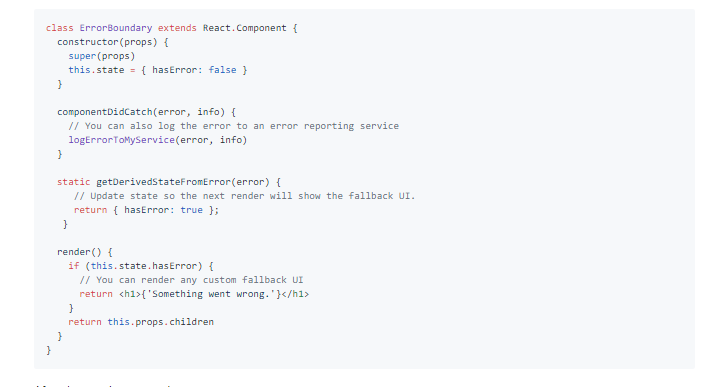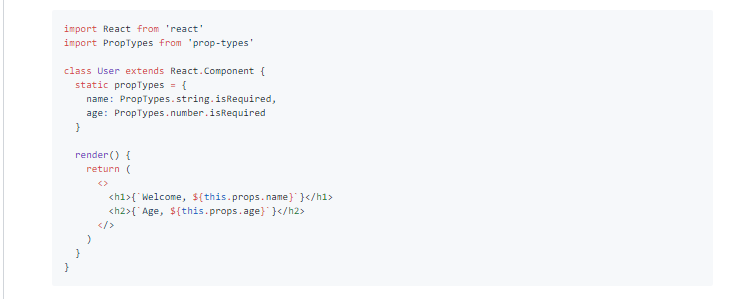What is ReactDOMServer?

The ReactDOMServer object enables you to render components to static markup (typically used on node server). This object is mainly used for server-side rendering (SSR). The following methods can be used in both the server and browser environments:
What is the purpose of render method of react-dom?

This method is used to render a React element into the DOM in the supplied container and return a reference to the component. If the React element was previously rendered into container, it will perform an update on it and only mutate the DOM as necessary to reflect the latest changes.
What is the use of react-dom package?
The react-dom package provides DOM-specific methods that can be used at the top level of your app. Most of the components are not required to use this module. Some of the methods of this package are:
What are the recommended ways for static type checking?
Normally we use PropTypes library (React.PropTypes moved to a prop-types package since React v15.5) for type checking in the React applications. For large code bases, it is recommended to use static type checkers such as Flow or TypeScript, that perform type checking at compile time and provide auto-completion features.
How error boundaries handled in React v15?
React v15 provided very basic support for error boundaries using unstable_handleError method. It has been renamed to componentDidCatch in React v16.
What are error boundaries in React v16?

Error boundaries are components that catch JavaScript errors anywhere in their child component tree, log those errors, and display a fallback UI instead of the component tree that crashed.
What are the advantages of React?
Increases the application's performance with Virtual DOM.
What are the limitations of React?
React is just a view library, not a full framework.
How to apply validation on props in React?

When the application is running in development mode, React will automatically check all props that we set on components to make sure they have correct type. If the type is incorrect, React will generate warning messages in the console. It's disabled in production mode due to performance impact. The mandatory props are defined with isRequired.
What are stateful components?

If the behaviour of a component is dependent on the state of the component then it can be termed as stateful component. These stateful components are always class components and have a state that gets initialized in the constructor.